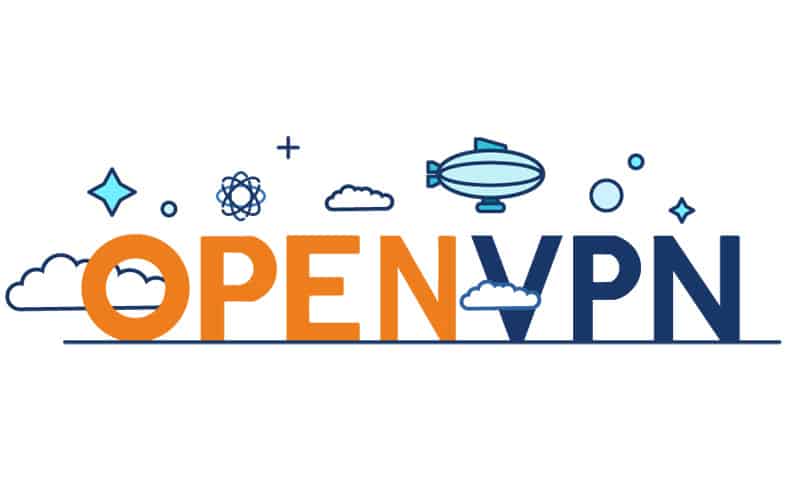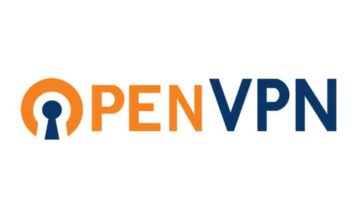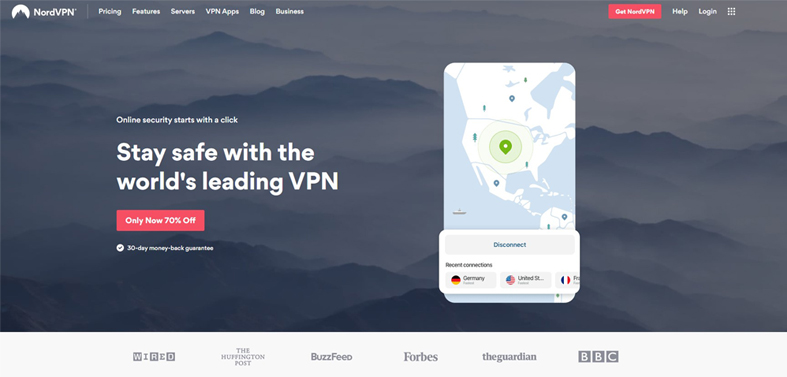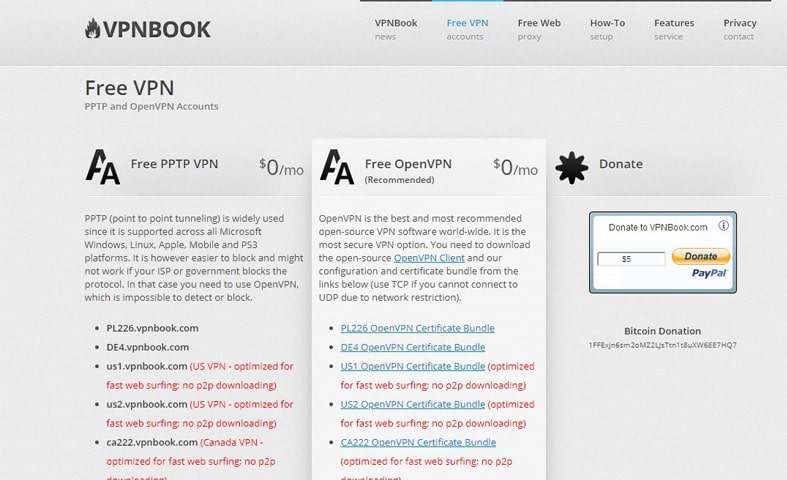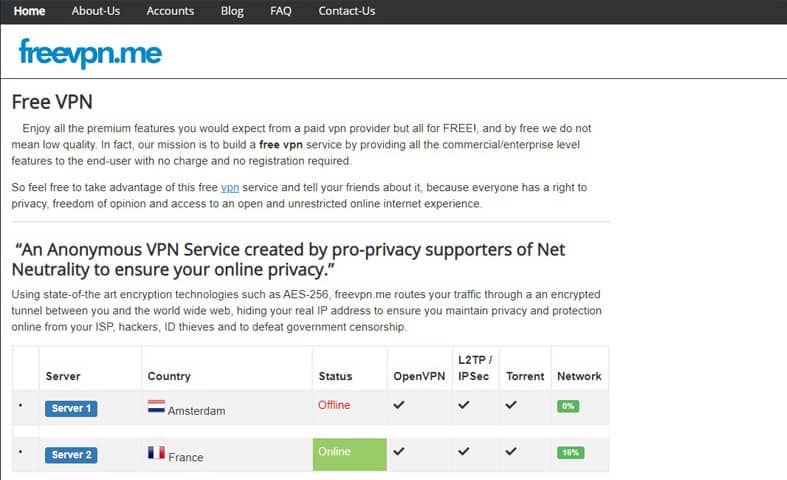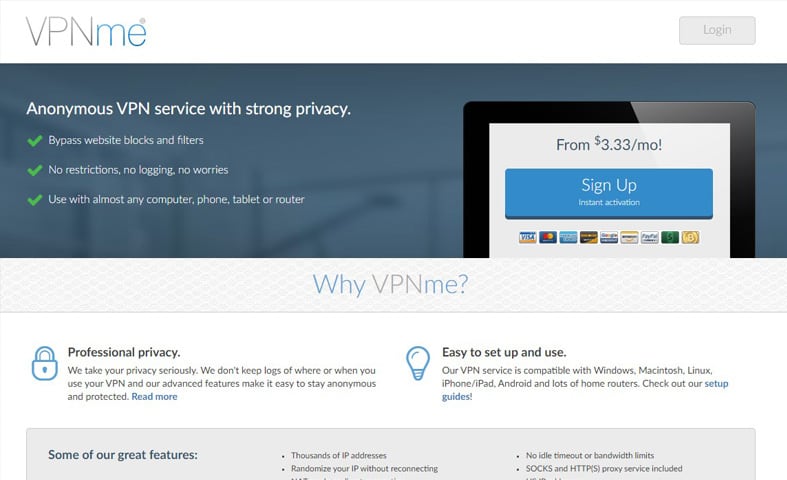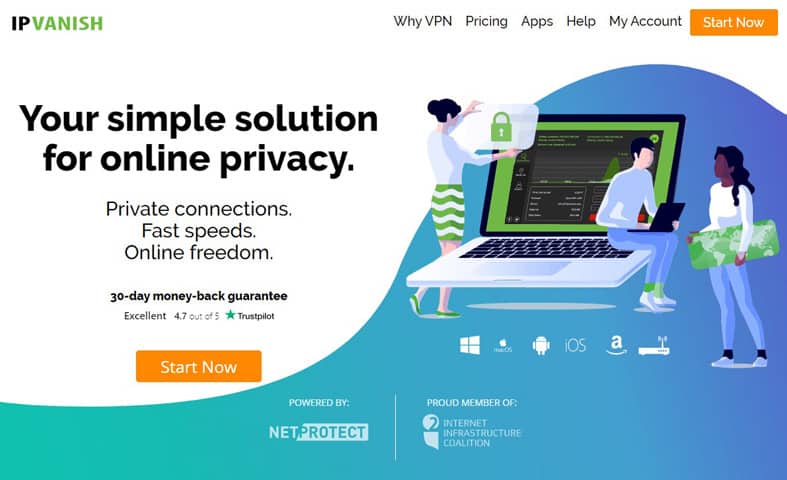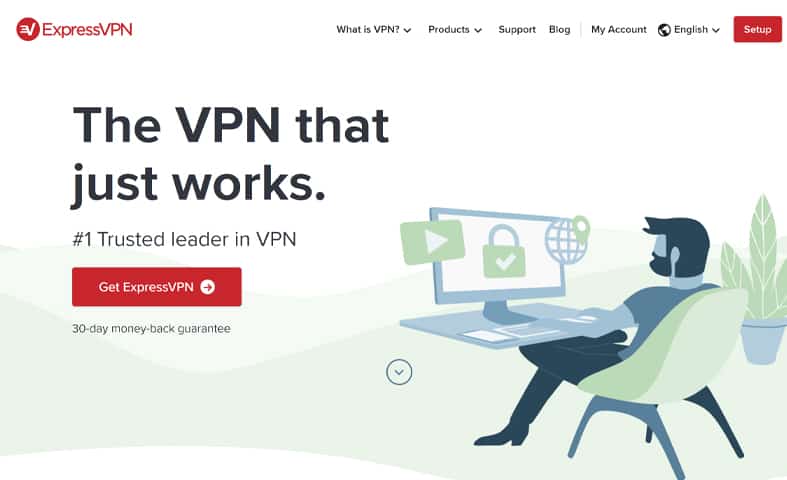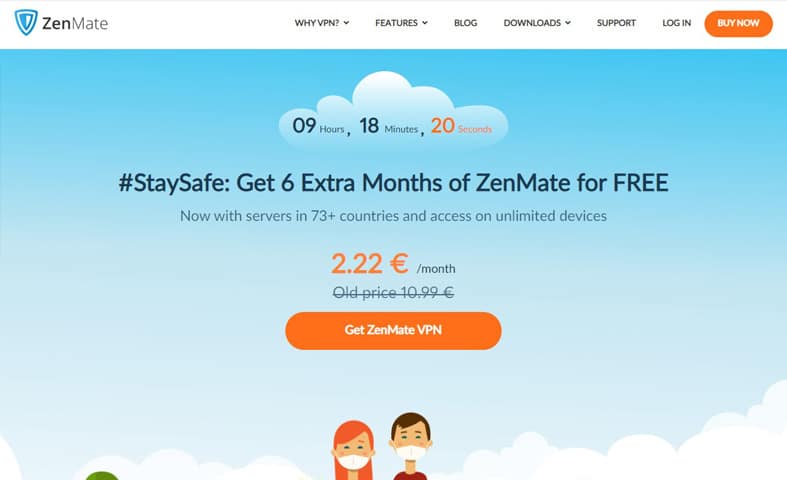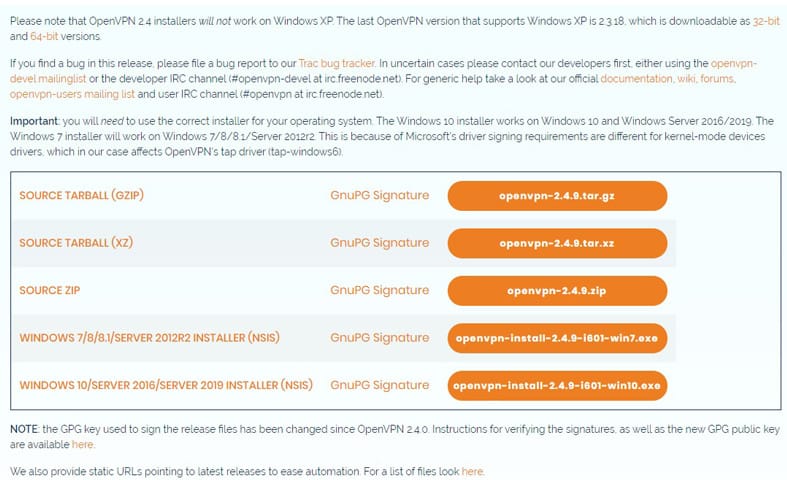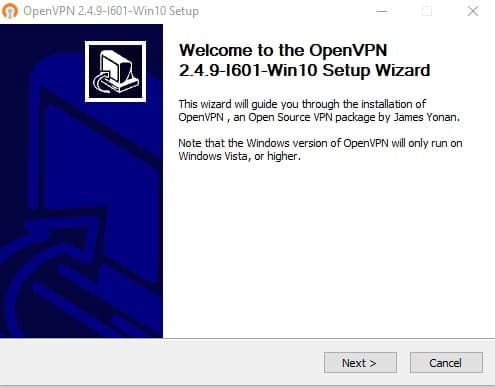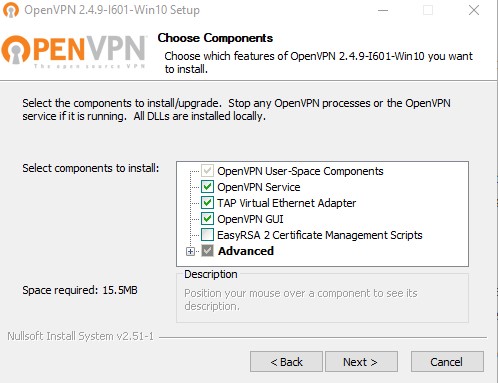To start, we’ll need to get rid of one general misconception: OpenVPN is a truly open source concept, but this doesn’t mean that it will provide you with a free VPN service.
Depending on the context, OpenVPN is either an open-source client or a VPN protocol. This means you don’t need to pay for software, but you will need to pay for subscription plans that will get you access to VPN servers.
With that out of the way, we can get started with our discussion of the technology known as a virtual private network and the VPN servers that support this technology. These services have VPN servers all over the world including places like New Zealand, France and Canada.
Let’s start by making sure we’re all on the same page when it comes to the terminology for VPN servers.
What Are VPN Protocols?
There are different VPN protocols aside from OpenVPN but for most people, the best free OpenVPN should be the default choice.
When you’re choosing your VPN provider it’s important to know what type of encryption it uses with its VPN servers, but it’s more important to know what are the protocols that stand behind it.
VPN protocols are important because they can increase or decrease the speed of your internet connection while you’re connected to VPN servers. The most used VPN protocols are Point-to-Point Tunneling Protocol (PPTP), Layer Two Tunneling Protocol (L2TP), Secure Socket Tunneling Protocol (SSTP) and Open Sourced Tunneling Protocol or OpenVPN. All of these protocols will allow you to connect to VPN servers.
What is OpenVPN?
OpenVPN is a VPN protocol that uses double authentication processes when connecting to VPN servers. One process is focused on the data that goes from your computer to VPN servers and the other process is mainly focused on the data flow that you receive from the VPN server. This results in your device and its connection to VPN servers being more secure.
When the authentication process finishes, the encryption process starts. OpenVPN uses symmetric encryption that can be 128-bit, 256-bit or even 448-bit.
These numbers refer to the length of the key that’s needed to unlock the encryption. The longer the key, the more secure the connection to VPN servers.
Benefits of Using OpenVPN
OpenVPN services are perfect for technical users because this protocol can be recognized when other types of protocols fail to be recognized. It won’t decrease the speed of your connection to VPN servers or, if it does, the impact will be insignificant. The reasons for this are the high levels of security and very efficient encryption.
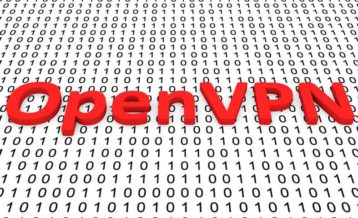
Other than that, VPN protocols exist for a secure connection to VPN servers. With regard to secure connections to VPN servers, OpenVPN is the best.
Now it’s time to take a look at our list of the five best free OpenVPN VPN providers.
Five Best Free OpenVPN Providers
1. NordVPN Free Trial

In addition to such specialized VPN servers, NordVPN also offers anonymous payment methods like Bitcoin. It’s perhaps one of the few VPN services that offer malware blocking despite being just a VPN service. Some of the other appealing features include the high quality of the VPN servers and lower load on their VPN servers to increase speeds.
With that said, some users may run into issues while trying to unblock streaming services other than Netflix when connected to NordVPN’s VPN servers. NordVPN, despite its otherwise great service, doesn’t have the VPN apps to match its high-quality VPN servers.
Of course, that shouldn’t dissuade anyone looking to buy a VPN subscription from trying out NordVPN since, in the end, it’s an OpenVPN provider that offers high-quality VPN servers to all its customers.
NordVPN also has one of the strongest zero-logs policy implementations. There’s live chat support as well in additions to a kill switch feature in case you get disconnected from the VPN servers.
For the negatives, NordVPN doesn’t have the most developed of browser add-ons. Users may run into some user interface problems and there are many VPN services that offer more economical packages.
More specifically, NordVPN will cost you $11.95 per month. You can get a discount if you sign up with this provider for a year. In the yearly-package case, you only have to pay $6.99 per month or you can sign up for a two-year plan and pay $4.99 per month. All of these packages get you access to the same VPN servers and the same features.
Note:
NordVPN has a free trial, but you’ll need to enter your credit card information to get it.After signing up for a package, if you don’t like the service or the VPN servers you can get a full refund. Of course, you’ll have to do it before 30 days run out.
As far as VPN guarantees go, we would say it’s pretty decent. NordVPN allows you to use the service and all of its VPN servers within the time period as much as you want. And no matter the reason, if you want your money back, they’ll give it to you. In one way, it’s a zero-cost trial just in the shape of a money-back guarantee.
NordVPN FAQ
2. CyberGhost Free Trial

When it comes to OpenVPN services, it makes them available for all its users. It offers free OpenVPN servers as well, aiming at protecting a single device with AES 256-bit encryption and featuring Open VPN as the security certificate suitable for Windows, Mac and Android.
This Open VPN provider has 6,400 VPN servers that can help you shield your anonymity.
The Open VPN servers themselves are located in over 89 different locations. Of course, the premium subscriptions provide even more appealing features for you to enjoy. This OpenVPN service is super easy to install and this simplicity doesn’t compromise quality standards at all.
CyberGhost is not only a great Open VPN service, though. It has premium VPN servers that allow for comfortable web surfing using open source technologies.
If you want the premium version then CyberGhost will cost you $12.99 per month. Get the annual package and the price comes down to $5.99 per month.
Keep in mind that you can only access a free OpenVPN server for one day with CyberGhost. After that, you’ll have to pay to access the VPN servers. It’s difficult to find easy ways to get OpenVPN free, but this is one short-lived way to do so and it has great VPN servers.
CyberGhost FAQ
3. VPNbook

The performance and the security that it provides are very good for a free Open VPN service. It’s one of the rare systems of its type that can run on modern operating systems and smartphones.
There are some downsides to the service as well. Although it doesn’t have huge installation files, the process itself can be complicated for novice users.
The company also doesn’t state the type of encryption they use. Another problem is the small choice of VPN servers and VPN server locations.
VPNbook FAQ
VPNBook packages offer VPN servers that support TCP 443 and TCP 80 connections.
4. FreeVPN.me

Their service supports Windows operating systems as well as Android and Linux.
It provides unlimited bandwidth, doesn’t require any login information and, best of all, you can do P2P downloading on their VPN servers.
In order to keep their services totally zero-cost, the company is seeking donations that can be as low as $1. They even take payments in Bitcoin.
FreeVPN.me packages offer VPN servers that support TCP 443 and TCP 80 connections.
5. VPNMe.com

You’ll need to install the OpenVPN client to enjoy its features and connect to a VPN server. Fortunately, all devices, platforms and operating systems are supported with all of the VPN servers.
Without any hidden fees and with a promising increase in the locations of the VPN servers available with VPNMe.come, there’s certainly a lot to look forward to.
Recommended: Three Best Premium OpenVPNs
1. IPVanish

The features that offers are more than enough to make it a good VPN service.
With VPN servers dotted all over the world, you can rest assured that all internet content is available to you from the comfort of your home. As far as the apps are concerned, IPVanish currently has dedicated apps for almost all major operating systems.
Note that if you’re new to using a VPN service and VPN servers then you may find some of the apps uncomfortable to use. That should only last for a day or two as you get used to the service. Once you get into the habit of connecting to VPN servers to hide your activity and change your location, you’ll have no trouble connecting to any VPN server you like which may be located in any corner of the world.
Some of the benefits you’ll get by connecting to IPVanish’s VPN servers include Netflix streaming, advanced security features, lots of VPN servers, a kill switch, web storage available via SugarSync and much more.
Of course, as with any other VPN service or internet product, IPVanish has its flaws. Its VPN apps aren’t the most friendly that you’ll come across. The VPN service doesn’t allow users to pay via anonymous methods like Bitcoin. Moreover, even though it works with U.S. Netflix, it doesn’t work with BBC iPlayer.
Lastly, IPVanish as a VPN service is a bit slow when it comes to updating its apps. However, it’s still a great VPN service with excellent VPN servers.
For a monthly package, you’ll pay $5 for your first month and then renew that at $12. The annual plan brings that price down to $3.25 per month for your first year and then $6.50 per month after the first year. All of these plans allow you to access all of their VPN servers.
2. ExpressVPN

The monthly plan costs $12.95 and you can receive time connected discounts.
This is one of the most user-orientated OpenVPN VPN service providers out there with 24/7 customer support. No matter what package you sign up for you’ll still be able to connect to all of their VPN servers.
3. Zenmate

Again, Zenmate does have its problems. Its feature set isn’t great. The VPN servers it offers aren’t super fast and the customer support leaves something to be desired. On top of all that, Zenmate isn’t exactly clear on what type of data it stores on its servers.
However, because Zenmate is cheap and doesn’t put a limit on the number of devices you can connect with a single account, it’s more than an interesting addition to the list of Open VPN services. It also has a seven-day trial period that comes at zero cost.
It’s because of all these reasons that we think you should try out the and its VPN servers. All in all, it’s a good service with decent VPN servers including some free OpenVPN servers that can change your IP address quickly and allow unrestricted web surfing.
How to Connect to an OpenVPN Service
Open VPN has become very popular due in no small part to its ability to work on almost all operating systems. In this section, we’ll take a look at how you can connect to an Open VPN server and take an all rights reserved approach to keeping your data safe.
This is important:
You should know that you’ll need a VPN subscription package. You’ll also need the necessary Open VPN configuration files from your VPN provider’s website.We’re going to assume that you’re running Windows for this tutorial.
Step 1: Download the client installer from the Open VPN website
A VPN client is nothing but a program that users can use to connect to VPN servers. The client usually takes care of the connection to VPN servers. This connection can be to a regular VPN server or an Open VPN server.
You can download the client installer here.
Step 2: Use the installer to install the client
Once you’ve downloaded the client file, you need to run the installer file to install it. Your operating system may ask your permission to run the file. Just keep clicking the Yes button on the instructions screens and don’t try to change the default settings.
The installer will take care of everything that’s required to make Open VPN servers work on your machine.
Step 3: Download your VPN provider’s configuration files
If you want to connect to Open VPN servers you need to get their configuration files. Some of these VPN server files might be nothing but a security certificate. There are also files that provide VPN servers information. You may have to download quite a number of these VPN servers configuration files especially if the VPN provider you’ve signed up for offers many VPN servers.
Most of the time these VPN servers files will be accessible on your VPN provider’s Support section. Most of the time, these VPN servers files will come in a ZIP file.
If you haven’t located these VPN servers configuration files then keep reading. Step 9 will have the answer to your problem.
Step 4: Locate the proper folder and copy your VPN servers configuration files into it
Assuming you find these VPN servers configuration files, you need to unzip them and copy all of the VPN servers configuration files along with the key files to C:\Program Files\OpenVPN\config. Again, we’re assuming you didn’t change your default Windows folder and installed the client in the default C directory. If you can’t find the folder there then check C:\Program Files(x86)\OpenVPN\config.
Step 5: Right click the OpenVPN shortcut. Choose the Run as Administrator option
It goes without saying that if the client is going to do its job, it will have to do it with administrative rights.
With that said though, don’t have the client running in the background before you change the option to Run as Administrator.
Step 6: Right click the client icon near the Windows System Tray
Once you do that, the VPN client should show you all the VPN servers that you copied into the VPN folder with the help of your VPN servers configuration files. Remember, you had to copy the VPN servers configuration files into the config folder of the client directory.
Step 7: Choose suitable VPN servers and hit the Connect button
The client will ask you for a profile username and password for the VPN servers you want to connect to. These are the same credentials that you used with your VPN provider account.
Step 8: Make sure there’s a valid VPN connection
The client should show you a successful connection notification. That would mean that you successfully connected to your specified VPN server.
More specifically, the client will now send all of your internet data through the VPN server. This process should work no matter which of the VPN servers you choose to use.
Step 9: How to connect to VPN servers without VPN servers configuration files
If you didn’t manage to find the VPN servers configuration files in Step 3 then don’t despair. There’s a way to get a proper connection to VPN servers.
What you need to do is to run the client and then input the host name or IP address of the VPN servers you’re interested in. Then use your login credentials when the client requests them. You can then choose a VPN profile if it asks. The process is finished when you click the Always option to allow the client to accept a security certificate.
That’s all you need to do for a connection to free VPN servers or paid VPN servers. You may also be able to engage in P2P downloading in addition to open source-enabled web surfing. This will depend on the type of VPN servers your VPN provider has.
Generally speaking though, no matter your platform, if you want to use a VPN, you must first install the VPN, open the VPN app and hit the Connect button. If you happen to have a free VPN account and the VPN provider offers even one VPN server free of cost then you don’t ever have to pay for your VPN servers or your service again.
Conclusion
OpenVPN is the future of the VPN industry and it will take over the majority of the market share in terms of how many people are using this protocol to connect to VPN servers.
Note:
The positive side of this protocol is that it doesn’t affect internet speeds that much and it provides greater security by using a longer encryption key.We’re sure that some of you have tried the OpenVPN service from some top VPN service providers. Your personal experience will be invaluable for us and our other readers that are currently searching for the right VPN service provider for them. We can continue the discussion in the comments section below.

